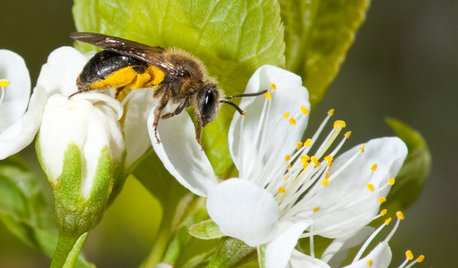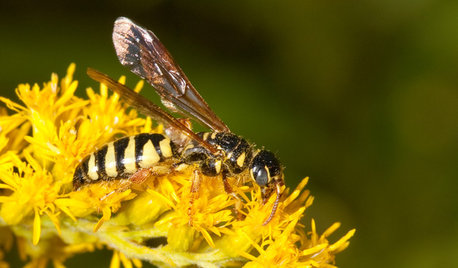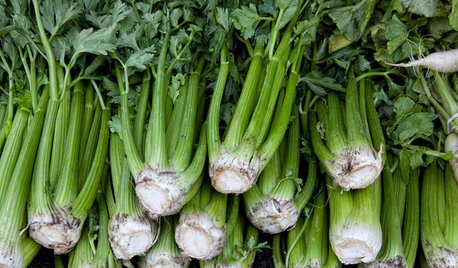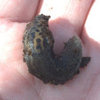nematodes
lily603
12 years ago
Related Stories

LIFEHow to Outsmart Backyard Critters
Learn to think like a raccoon, skunk or squirrel to keep your home safe and your garden intact
Full Story
GARDENING AND LANDSCAPINGBid Bad Garden Bugs Goodbye and Usher In the Good
Give ants their marching orders and send mosquitoes moseying, while creating a garden that draws pollinators and helpful eaters
Full Story
GARDENING GUIDESHow to Switch to an Organic Landscape Plan
Ditch the chemicals for a naturally beautiful lawn and garden, using living fertilizers and other nontoxic treatments
Full Story
GARDENING GUIDESInvite Mining Bees to Your Garden by Planting Their Favorite Plants
Look for mining bees (Andrena) pollinating woodland wildflowers in U.S. gardens this spring
Full Story
FARM YOUR YARDHow to Get Good Soil for Your Edible Garden
The nutrients in your soil feed the plants that feed you. Here are tips on getting it right — just in time for planting season
Full Story
GARDENING GUIDESAttract Thynnid Wasps With Summer-Flowering Native Plants
These beneficial insects will hunt damaging beetle grubs in your lawn
Full Story
GARDENING GUIDESGet on a Composting Kick (Hello, Free Fertilizer!)
Quit shelling out for pricey substitutes that aren’t even as good. Here’s how to give your soil the best while lightening your trash load
Full Story
GARDENING GUIDESGarden Myths to Debunk as You Dig This Fall and Rest Over Winter
Termites hate wood mulch, don’t amend soil for trees, avoid gravel in planters — and more nuggets of garden wisdom
Full Story
EDIBLE GARDENSSummer Crops: How to Grow Tomatoes
Plant tomato seedlings in spring for one of the best tastes of summer, fresh from your backyard
Full Story
COOL-SEASON CROPSHow to Grow Celery
If you're up for a challenge this fall, try growing celery and celeriac in your garden.
Full Story0









jean001a
Kimmsr
Related Professionals
Holly Springs Landscape Architects & Landscape Designers · Windham Landscape Architects & Landscape Designers · Camas Landscape Architects & Landscape Designers · Apollo Beach Landscape Contractors · Bridgeport Landscape Contractors · Cambridge Landscape Contractors · Dickinson Landscape Contractors · Galt Landscape Contractors · Norristown Landscape Contractors · Richmond Landscape Contractors · Ringwood Landscape Contractors · Seminole Landscape Contractors · Hawaiian Gardens Landscape Contractors · Golden Valley Landscape Contractors · Shafter Landscape Contractorsrhizo_1 (North AL) zone 7
nonikiyu